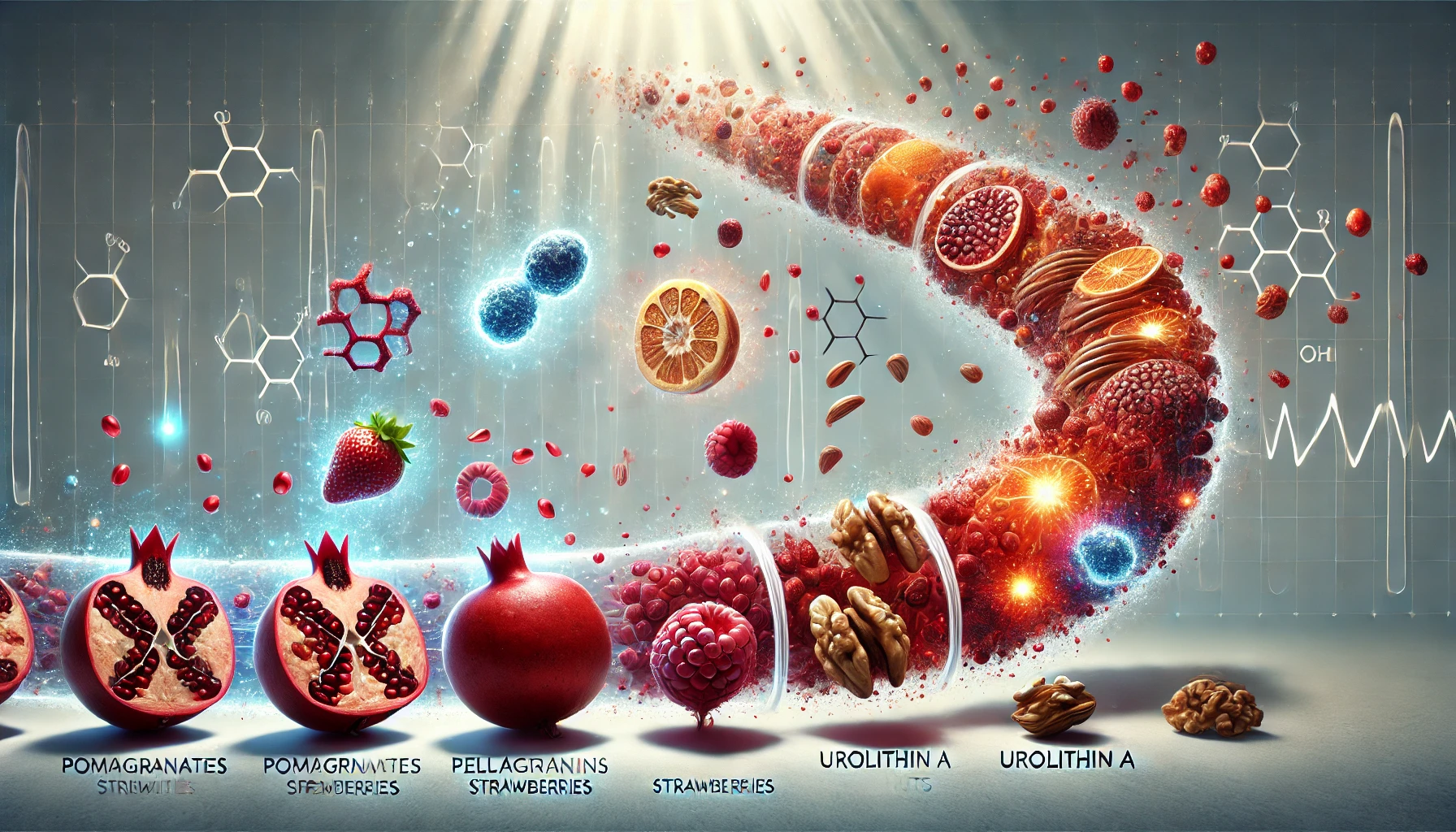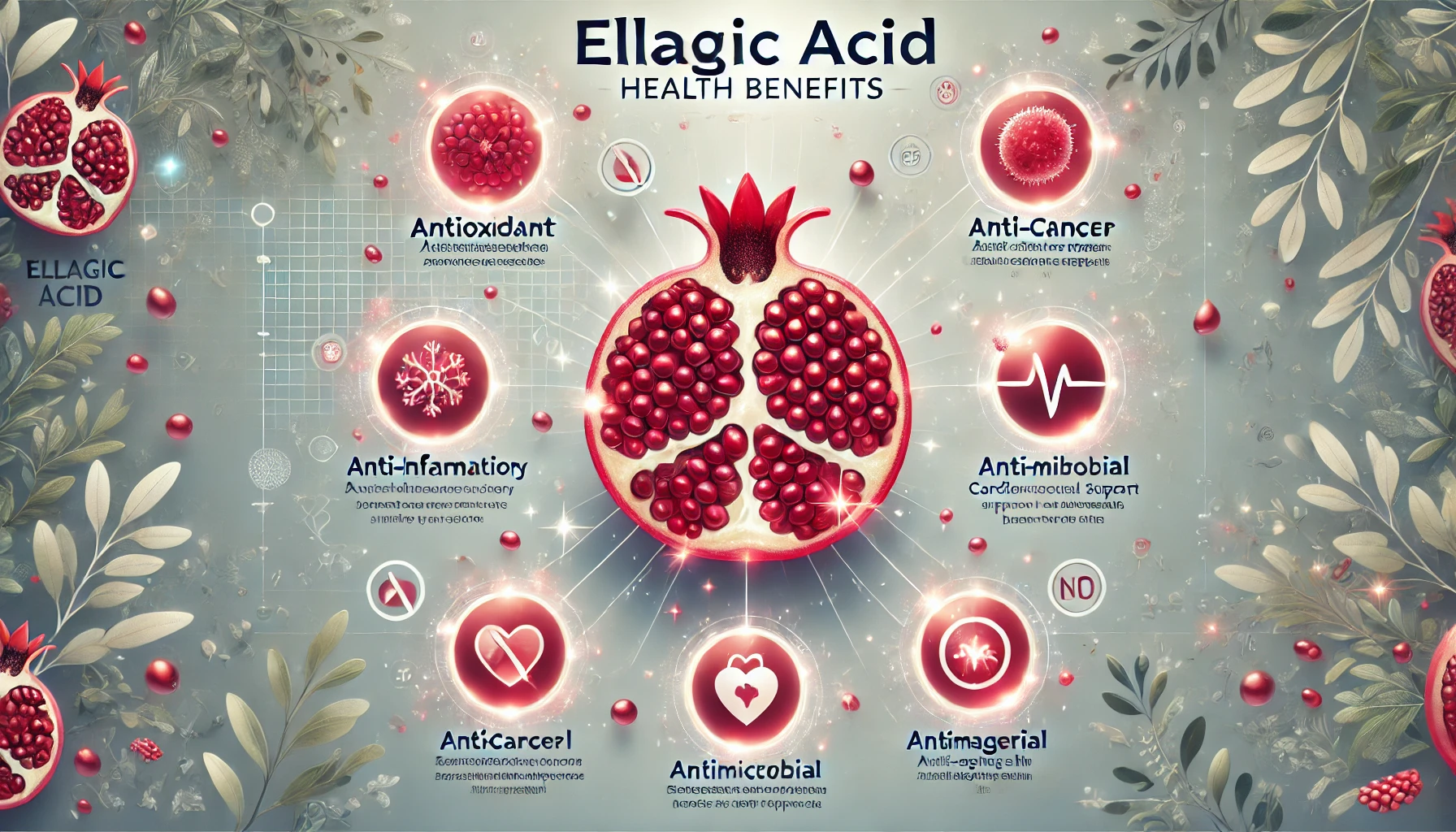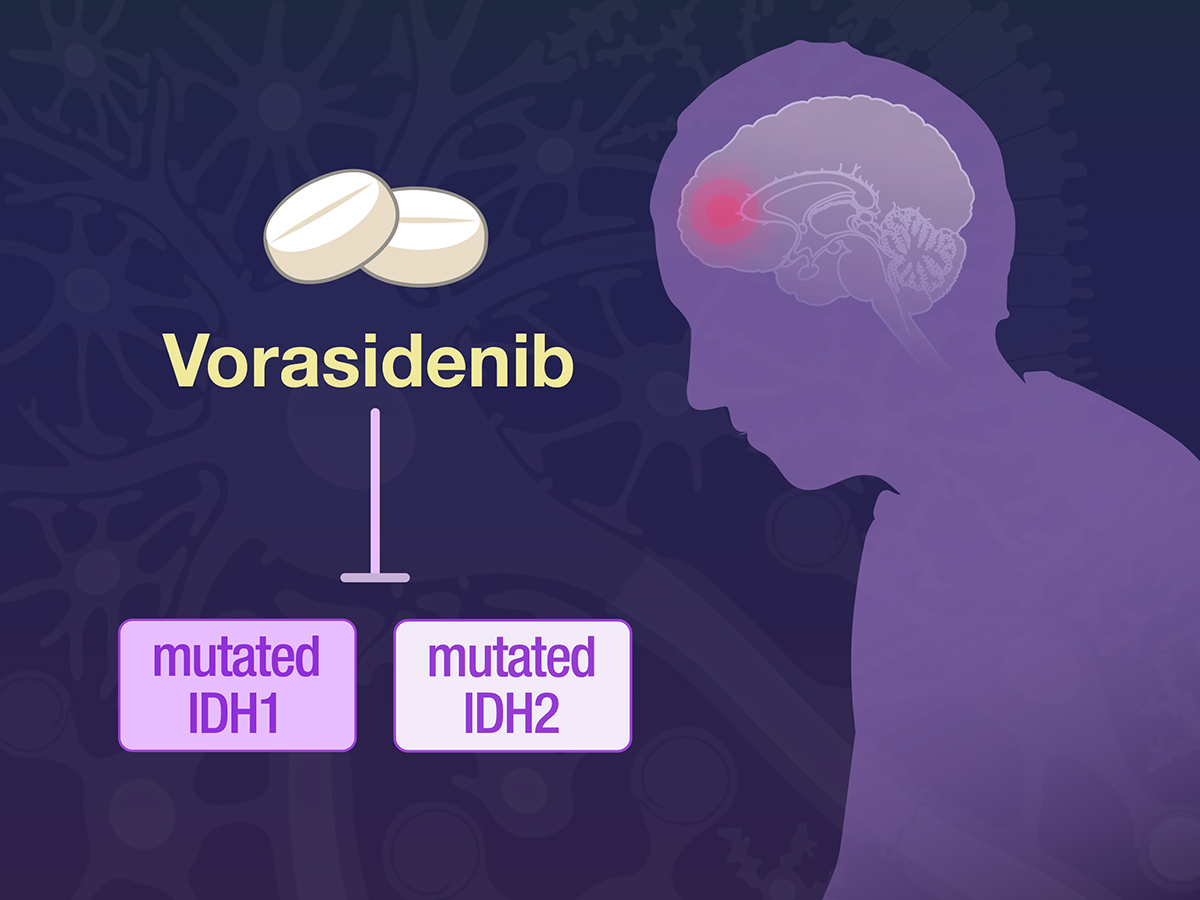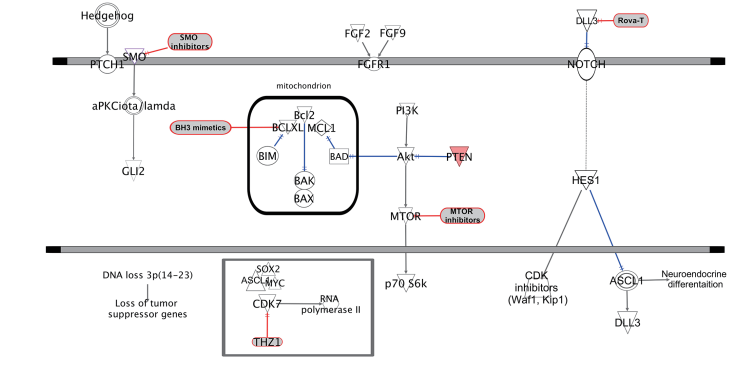Urolithin A: The Science-Backed Postbiotic for Energy, Longevity, and Mitochondrial Health
Abstract
Urolithin A is an emerging postbiotic compound derived from the metabolism of ellagitannins found in foods like pomegranates and berries. Known for its ability to promote mitophagy—a cellular process that removes damaged mitochondria—Urolithin A has shown promising benefits for improving mitochondrial health, muscle function, and overall vitality. However, natural production depends on specific gut microbiota, making supplementation a reliable method for consistent intake. Backed by clinical research, Urolithin A offers a novel approach to combat aging, enhance energy, and support healthy cellular function. This blog post explores its origin, mechanism of action, benefits, safety, and supplementation options, offering a comprehensive guide for individuals interested in longevity and biohacking.
Urolithin A: A New Frontier in Longevity and Energy Health
In the rapidly evolving world of health optimization and longevity science, few compounds have garnered as much attention in recent years as Urolithin A. Touted as a natural molecule with powerful cellular benefits, Urolithin A has been linked to improved energy, enhanced mitochondrial function, and even anti-aging properties. But what exactly is it—and why is it suddenly appearing in wellness supplements and scientific headlines?
Urolithin A is not a vitamin or a mineral, but a postbiotic—a beneficial compound produced in your body when gut bacteria metabolize ellagitannins, a type of polyphenol found in foods like pomegranates, walnuts, and certain berries. While not everyone’s gut microbiome is capable of producing it efficiently, science has found ways to deliver it through direct supplementation.
What makes Urolithin A so compelling is its role in a biological process known as mitophagy, the body’s natural way of clearing out damaged mitochondria—often referred to as the “powerhouses” of cells. As we age, mitochondrial function declines, leading to fatigue, slower recovery, and cognitive issues. Urolithin A has been shown to stimulate mitophagy, supporting cellular energy and longevity in both preclinical and human studies.
Whether you’re interested in biohacking, anti-aging, or simply boosting your energy levels naturally, Urolithin A represents a promising development. And as more clinical studies are published, it may soon become a staple in the supplement regimens of health-conscious individuals worldwide.
What Is Urolithin A?
Urolithin A is a naturally occurring compound classified as a postbiotic, meaning it is produced by gut microbiota from dietary precursors—specifically ellagitannins and ellagic acid. These polyphenolic compounds are abundant in foods like pomegranates, raspberries, strawberries, and walnuts. Once ingested, ellagitannins are broken down in the gut into ellagic acid, which is then metabolized by certain gut bacteria into urolithins, including Urolithin A.

However, not everyone can produce Urolithin A naturally. The ability depends on the composition and diversity of the gut microbiome, which varies significantly from person to person. In fact, studies show that only a subset of the population are “producers” of Urolithin A, making direct supplementation a more reliable option to gain its benefits.
Urolithin A has gained attention for its potential to improve cellular and mitochondrial health, promote longevity, and reduce inflammation. Because it originates from dietary intake and is processed internally, it represents a compelling bridge between nutrition and microbiome science.
As research continues to reveal its wide-ranging physiological effects, Urolithin A is becoming a central focus in the emerging field of nutraceuticals—products derived from food sources that provide health benefits beyond basic nutrition.
How Does Urolithin A Work?
The main reason Urolithin A has captured scientific interest is due to its role in a process called mitophagy—a critical mechanism where the body selectively eliminates damaged or dysfunctional mitochondria. Think of it as a “cellular cleanup” for your energy centers. As we age, this process slows down, contributing to fatigue, muscle decline, and even age-related diseases. Urolithin A acts like a mitophagy activator, restoring cellular efficiency and boosting mitochondrial function.
Unlike many supplements that provide short-term energy boosts, Urolithin A works on a foundational cellular level. By encouraging the recycling of aged or damaged mitochondria, it helps the body maintain energy homeostasis, improve muscle endurance, and reduce oxidative stress. This process is particularly significant for aging populations and individuals with mitochondrial-related dysfunctions.
Animal studies have shown that Urolithin A extends lifespan in C. elegans (a model organism for aging research) and improves muscle strength and endurance in rodents. More importantly, human clinical trials have validated its safety and effectiveness, showing improved biomarkers of mitochondrial health and endurance in older adults.
This mitochondrial rejuvenation sets Urolithin A apart from other antioxidants or supplements. It doesn’t just support the mitochondria—it renews them, opening a new frontier for functional aging and energy optimization.
Scientifically Proven Benefits of Urolithin A
Urolithin A offers a range of clinically backed health benefits, particularly related to aging, energy metabolism, and muscle function. Its standout feature is the promotion of mitophagy, which supports mitochondrial renewal and helps reduce cellular damage over time. Clinical trials have shown that Urolithin A supplementation improves muscle strength and endurance, even in sedentary older adults. Additionally, it may reduce inflammation and oxidative stress, two key drivers of age-related diseases.
Emerging research also suggests potential cognitive benefits due to improved mitochondrial function in neurons, making it a promising candidate for brain health and longevity strategies.
So, who should consider using Urolithin A?

Aging adults experiencing fatigue or muscle decline
Athletes or active individuals seeking better recovery and performance
People with a less diverse gut microbiome who cannot naturally produce it
Anyone focused on healthy aging or combating age-related energy decline
Because of its excellent safety profile and targeted cellular effects, Urolithin A is increasingly being viewed as a foundational supplement for modern longevity protocols.
Natural Food Sources vs Supplements – What’s the Best Way to Get Urolithin A?
Urolithin A is not directly found in foods but is a gut-derived metabolite produced when the body digests ellagitannins—a type of polyphenol present in foods such as pomegranates, raspberries, strawberries, and walnuts. These compounds are first converted into ellagic acid, which is then transformed into Urolithin A by specific gut bacteria.
However, the catch is this: not everyone has the gut microbiota capable of making Urolithin A. Studies show that only about 30–40% of people are “natural producers,” depending on their gut diversity and health. Factors like age, antibiotic use, and diet can all impact your ability to synthesize it.
This variability has led to the rise of Urolithin A supplements, which offer a standardized dose independent of microbiome efficiency. Supplements provide clinically validated doses (typically 250–500 mg/day), bypassing the uncertainties of dietary conversion. One notable form, Mitopure®, has been extensively studied for its purity, bioavailability, and safety in humans.
While a diet rich in ellagitannin-containing foods is still beneficial for overall health, relying solely on them for Urolithin A production may not yield optimal results. Supplementation ensures consistent delivery, especially for individuals looking to target mitochondrial health, energy support, or age-related muscle decline.
For those aiming to optimize cellular energy or adopt a longevity-focused routine, supplements are currently the most reliable and efficient method of obtaining Urolithin A.
Conclusion: Is Urolithin A Worth It?
In the evolving landscape of health, wellness, and longevity science, Urolithin A stands out as a promising compound with tangible, science-backed benefits. From its ability to enhance mitochondrial function to its role in promoting muscle endurance, reducing cellular stress, and supporting healthy aging, it has gained considerable interest among researchers, clinicians, and health enthusiasts alike.
What makes Urolithin A unique is that it doesn’t merely mask fatigue or provide a temporary energy boost—it works at a cellular level by stimulating mitophagy, the body’s natural process of removing and recycling dysfunctional mitochondria. This cellular “housekeeping” is essential for sustaining optimal energy production, slowing age-related decline, and improving physical performance, especially in older adults.
While foods like pomegranates and walnuts offer natural precursors (ellagitannins), the body’s ability to convert them into Urolithin A depends on the composition of the gut microbiome, which varies greatly between individuals. For most people, direct supplementation provides a consistent and effective alternative to ensure the body receives adequate amounts of this postbiotic compound.
As with any emerging health trend, it’s important to consider the quality of evidence and choose clinically tested formulations. With strong safety data and ongoing clinical research, Urolithin A represents a cutting-edge option for those focused on energy, performance, and longevity.
If you’re seeking a scientifically supported way to boost vitality from the inside out, Urolithin A is certainly worth considering as part of your daily wellness routine.
References
Kothe B, Klein S, Petrosky SN. Urolithin A as a Potential Agent for Prevention of Age-Related Disease: A Scoping Review. Cureus. 2023 Jul 27;15(7):e42550. doi: 10.7759/cureus.42550. PMID: 37637627; PMCID: PMC10460156.
https://pubmed.ncbi.nlm.nih.gov/37637627/
Singh A, D’Amico D, Andreux PA, Fouassier AM, Blanco-Bose W, Evans M, Aebischer P, Auwerx J, Rinsch C. Urolithin A improves muscle strength, exercise performance, and biomarkers of mitochondrial health in a randomized trial in middle-aged adults. Cell Rep Med. 2022 May 17;3(5):100633. doi: 10.1016/j.xcrm.2022.100633. PMID: 35584623; PMCID: PMC9133463.
https://pubmed.ncbi.nlm.nih.gov/35584623/
D’Amico D, Olmer M, Fouassier AM, Valdés P, Andreux PA, Rinsch C, Lotz M. Urolithin A improves mitochondrial health, reduces cartilage degeneration, and alleviates pain in osteoarthritis. Aging Cell. 2022 Aug;21(8):e13662. doi: 10.1111/acel.13662. Epub 2022 Jul 1. PMID: 35778837; PMCID: PMC9381911.
https://pubmed.ncbi.nlm.nih.gov/35778837/
Kuerec AH, Lim XK, Khoo AL, Sandalova E, Guan L, Feng L, Maier AB. Targeting aging with urolithin A in humans: A systematic review. Ageing Res Rev. 2024 Sep;100:102406. doi: 10.1016/j.arr.2024.102406. Epub 2024 Jul 11. PMID: 39002645.
https://pubmed.ncbi.nlm.nih.gov/39002645/
Zhang M, Cui S, Mao B, Zhang Q, Zhao J, Zhang H, Tang X, Chen W. Ellagic acid and intestinal microflora metabolite urolithin A: A review on its sources, metabolic distribution, health benefits, and biotransformation. Crit Rev Food Sci Nutr. 2023;63(24):6900-6922. doi: 10.1080/10408398.2022.2036693. Epub 2022 Feb 10. PMID: 35142569.



